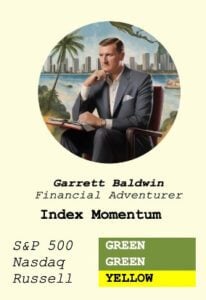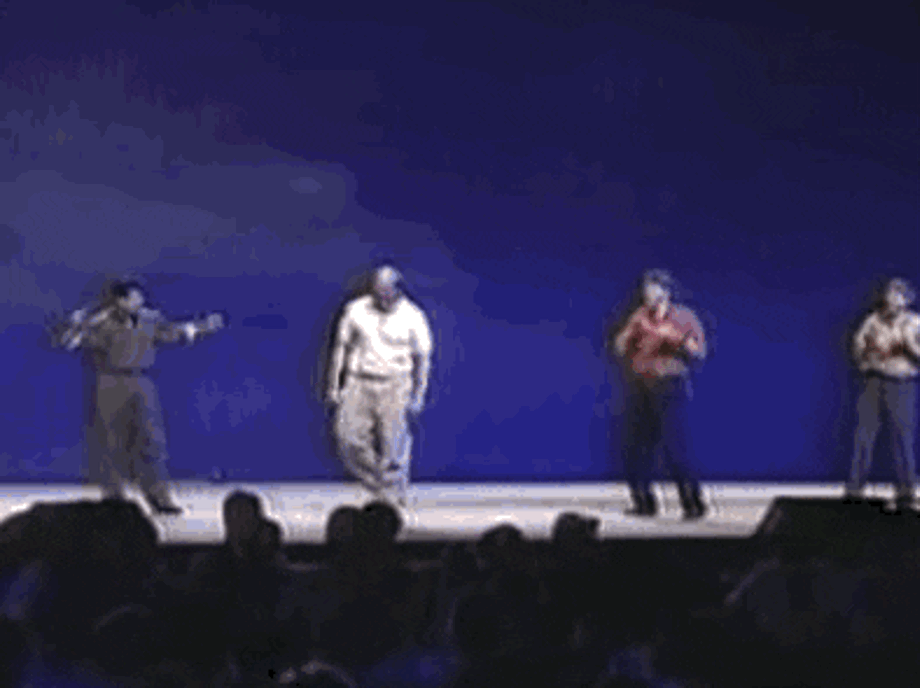
 Last night, my wife and I found ourselves in Tampa, Florida.
Last night, my wife and I found ourselves in Tampa, Florida.
We attended a concert by Noah Kahan, an indie/folk musician who has emerged as a Tour De Force in the post-COVID world. This was my wife's idea... and it was a fair trade for my trip to Baltimore to watch the baseball playoffs.

Two observations.
First...
Not many of his songs are uplifting. Most are about depression, alcohol, and his love-hate relationship with his hometown. But the album Season of the Sticks (also the name of the tour) is VERY well written, and it appears to resonate with many younger fans dealing with the world after lockdowns.
At the onset of his show, Kahan said it was only the second time he'd played in Florida. "You're all so happy and smiling," he laughed. "It's kind of $%@$#$ pissing me off."
The crowd laughed.
As one of his songs goes, we don't have his "Northern Attitude."
More importantly, I've been to and watched a lot of concerts. The loudest I've ever heard an audience sing the lyrics to a song in unison with the lead singer was A Certain Romance by the Arctic Monkeys at the Glastonbury Festival in 2013.
But this was a shave of an octave below (and an audience well less than half of Glastonbury). We'd watch this guy, who'd emerged through TikTok in recent years, stand in awe that his music resonated while the audience sang and he played.
It was a great show.
Now, the second observation from last evening... is more troubling.
I danced a lot like Bill Gates last night...

No clue what to do with my arms... No clue how to follow a drumbeat.
But enough about me... Let's get to the real drumbeat this week.
Bailout Summoned...
Yesterday, Bloomberg has the headline story that large banks are poised to write off bad loans as they report earnings in the day ahead. They write:
"JPMorgan, Citigroup, and Wells Fargo, which report third-quarter results Friday, will join Bank of America-which reports Tuesday-in posting roughly $5.3 billion in combined third-quarter net charge-offs, the highest for the group since the second quarter of 2020, according to data compiled by Bloomberg."
That's bad...
But here's the real kicker...
Over at American Banker, a trade publication for the financial industry, an Op-Ed emerged yesterday captured our attention. It's written by Paul Graham, a managing director at Bridge 2 Partners.
The title: "U.S. banks need TARP 2.0: A trapped asset relief program."
The subhead...
"The Fed's meteoric increase in the federal funds rate over the last 18 months has left banks holding billions in unproductive investment securities. Helping them would be good for the economy,"
It's October, and someone's arguing for bank bailouts centrally planned asset strategies to provide ample liquidity to the financial sector to help America thrive...
If you recall, the Federal Reserve opened its discount window and provided liquidity to banks in March that were dealing with a "duration crisis" on bonds they owned.
As I've noted, safe assets are the source of financial ruin. And while interest rates increased by 525 basis points in less than two years, the on-paper losses for banks mounted.
Banks had unrealized losses worth more than $525 billion at the end of the second quarter. Today, that figure could be north of $700 billion. We'll have a few updates in the coming weeks.
Now, I've talked about this crisis... and how to address it
And I've mentioned that our best bet is to take some medicine as a society - and tighten our fiscal spending. We can balance our Fiscal budgets... eliminate the ruinous government spending that has many people worried about the march to $50 trillion in debt by 2032... and, with the right restraint, take the medicine of a recession and cut interest rates sooner.
That would provide some relief to these financial institutions as a bonus.
But Graham's talking about a rehash of the 2008 crisis - with TARP 1.0.
We had what felt more like TARP 1.5 in March when the Bank Term Funding Program was billed as a $25 billion stopgap but turned into a $108 billion program that won't be wound down by March 2024 (as some other people suggested) because interest rates will be elevated through the year ahead.
Graham's plan would be a "Trapped Asset Relief Program" or TARP 2.0. The idea would authorize $1 trillion this time to relief efforts - well above the original TARP program's $700 billion. It would issue warrants to the Treasury Department (via Fed) and would apply to "available-for-sale securities," not "held-to-maturity," according to journalist Jack Foley..
Now, let me stress. The government isn't considering this.
But it's showing up in the editorial column of a very important banking publication.
I expect we'll see more of this in the future. The argument goes that by revving up the money engine, we'll help the banks... and they'll help America.
Because that worked SO WELL LAST TIME...
With proposals like this, no one's accountable.
Moral hazard persists everywhere.
And there seems to be more pain in the months ahead.
The Fed and Washington D.C. are responsible for this one. And Wall Street didn't even bother to manage their portfolios.
The financial sector doesn't just love bailouts.
It relies on them. It's clearly within the business model.
As former bond trader Chris Arnade wrote in 2016 after reflecting on the original TARP: "Maybe I only loved TARP because of what it gave me and my friends, which was a lot of money."
As he noted, however, the original TARP was a tale of two Americas. He offered is one of my favorite rants about Wall Street and the U.S. government ever written.
It follows:
"There really were two Americas. Two opportunity sets. Two education systems. Two legal systems. Two sets of rules.
The elites (Sorry about that word) got the better of it all. Better opportunities. Better educations. Better laws. Better bailouts.
And TARP was just a continuation of that, regardless of the relative merits of it at the time.
It represented how shit plays out in America: If you have money, you get cut all the breaks. If you don't, you suffer all the breaks."
If there was justice, a new bailout would benefit the people with pensions and fixed incomes that were run over by inflation and interest rate policies that few decades of zero-truly understood. But that won't happen... because "America."
Be sure to read the whole thing.
And I'll stay on this story.
Stay Positive,
Garrett Baldwin
Secretary of Defense


